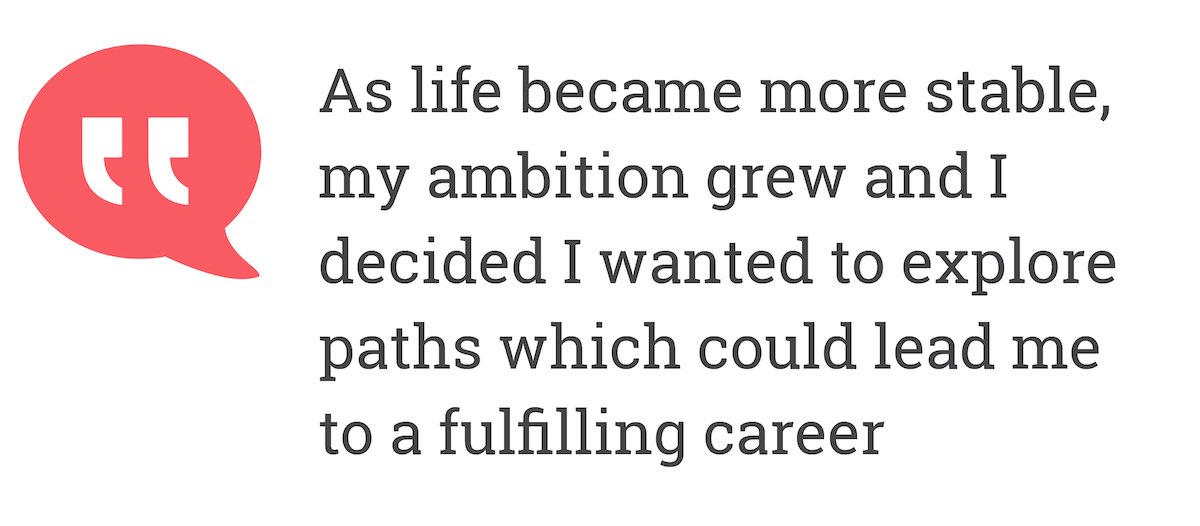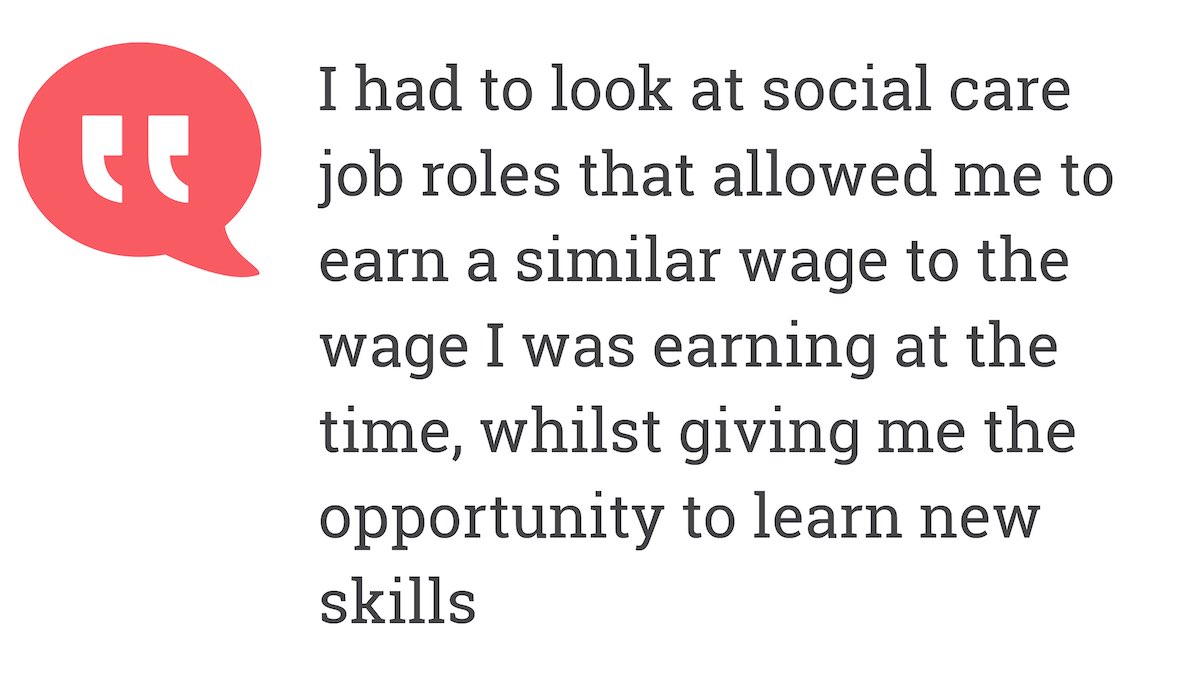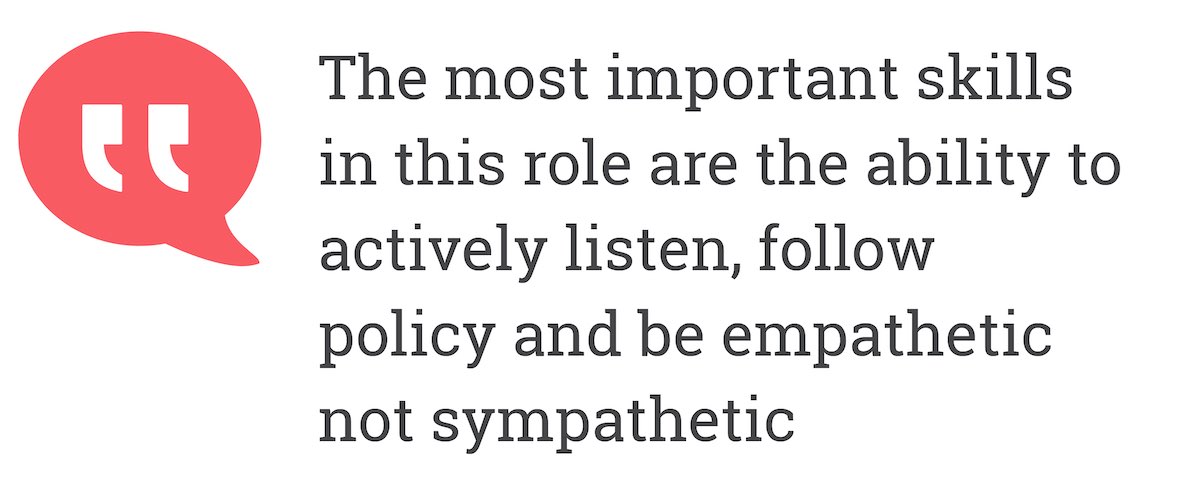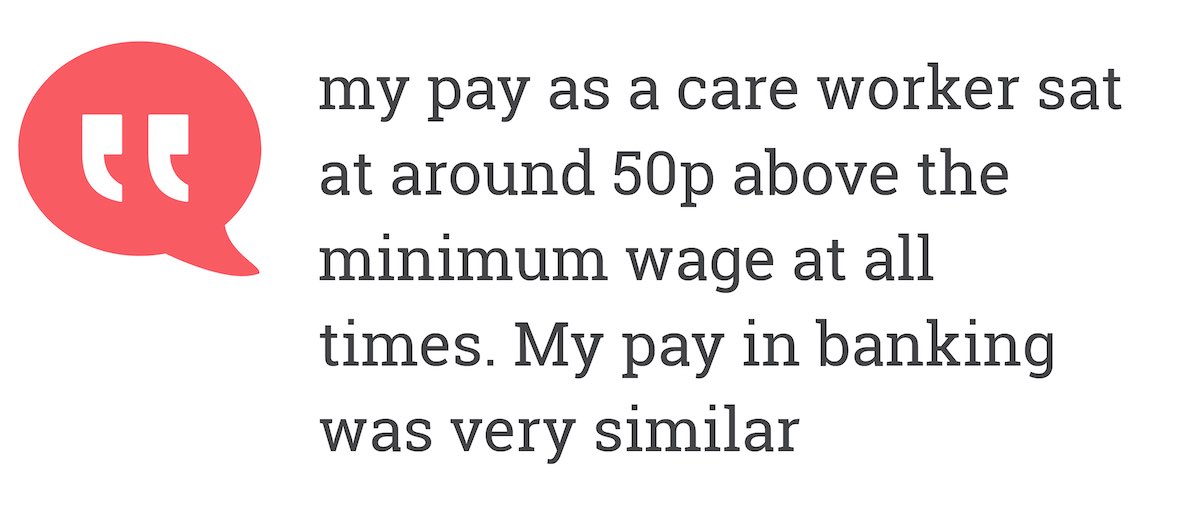 "If working in the care sector interests you and you have read this article my advice would be to make the move!"
"If working in the care sector interests you and you have read this article my advice would be to make the move!"I used to work in banking. I’m now a Care Assessor in domiciliary care. I would recommend my journey to anyone looking for a change, a challenge and job satisfaction. This is why and how I did it.
Topics Covered In This Article
My Background - My Working Life Before Care
Why I Was Drawn To Working In Care?
What Personal Skills Do You Need To Work In Social Care?
What Are The Duties & Responsibilities Of A Home Care Worker
How Does Home Care Work Compare To My Job In Banking?
How I Switched Career Paths To Become A Care Assessor
What Are The Job Functions and Responsibilities Of A Care Assessor?
How Much Can A Care Assessor Earn?
How Does Pay In Domiciliary Care Compare To Banking Customer Service Jobs?
What Is The CQC’s Role In The Home Care Sector?
What You Should Do First If Working In Home Care Interests You
My Background - My Working Life Before Care
I worked multiple customer service jobs from leaving school including working in pubs, bookmakers and in an estate agents.
In 2004, I secured a role working for a reputable high street bank
Within this role, duties included: customer service, cash handling, ordering and balancing money, generating leads, organising appointments, all aspects of account handling and processing, dealing with enquiries from both internal and external customers, problem solving whether mathematical or applying knowledge / common sense, supporting my team to achieve and exceed requirements, adhering to all regulatory legislation, working with confidentiality and empathy, looking for fraud and irregularity, adapting my communication to deal with people on all levels.

These jobs, for me, did what I needed them to do at that time in my life.
They allowed me to be in a safe and comfortable environment whilst giving me the funds to take care of my family.
As life became more stable, my ambition grew and I decided I wanted to explore paths which could lead me to a fulfilling career.
For me this meant looking at ways I could use the skills and qualifications I had to break into an alternative job sector.












About this contributor
Domiciliary Care Assessor
I used to work in the banking sector. I enjoyed the role, but it didn’t fulfil my passions in life. I decided to dedicate my life to helping people. I started as a Domiciliary Home Care Worker. I took a university access course and am now in the third year of my degree. During that time, my job role has also progressed. I am now a Domiciliary Care Assessor for the same company I began my journey with.
More by this contributorWant to get involved in the discussion?
Log In Subscribe to comment